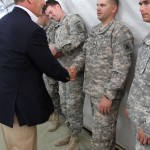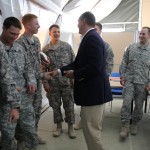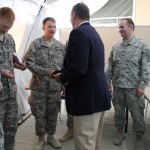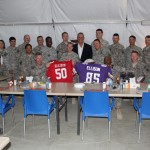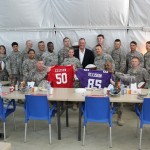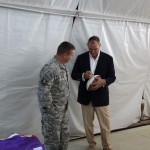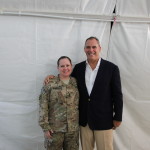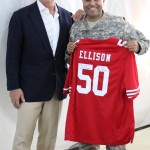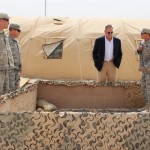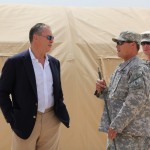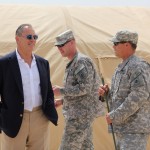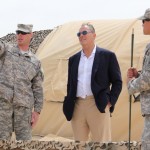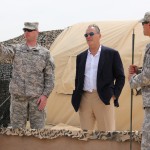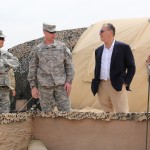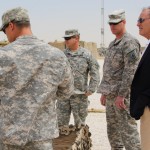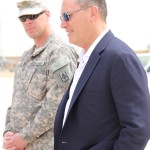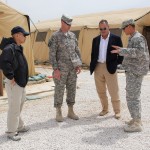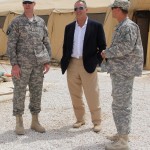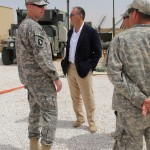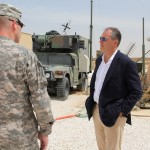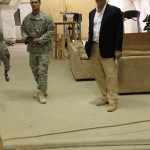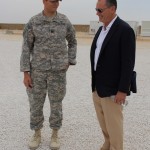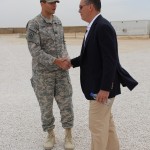We find the Arab world in disarray, on the verge of a reformation between the Shiite and the Sunni as the countries of Arabia and Persia are defined by which faction of Islam rules their country or wants to rule their country. The two ancient rivers older than these religions, the Tigris and Euphrates are the headwaters of turbulence that flows downstream to Iraq and Syria as those long river valleys of both that have incubated the breeding grounds of ISIS. To the west in Syria, is an insecure government backed by Russia, enabling this regime to crush its people unimpeded with Scud missiles, rockets and mortars. To the south is Yemen, a desolate unconquerable country, in control of Houthi insurgents supported by Shiite Iran in an attempt to gain a strategic pincer hold on the Gulf for power, with Syria on one claw and Yemen on the other.
The three big regional players, Egypt, Turkey, Saudi Arabia vie for the status as the single regional power countering Iran. Saudi Arabia has its band of Arab brothers with UAE and Jordan leading the air fight against the Houthi rebels in Yemen. This Arab coalition will need to either step up and go beyond air strikes and take the fight to the ground, sustain it, shed blood for it, control it and eventually wipe it out to win in the long run. The Arab coalition will be very challenged to stay the course in defeating embedded insurgent groups in harsh terrain backed by Iran. Complicating this calculus for the Arab coalition is the upcoming U.S.-Iranian nuclear deal that would have the United States playing both sides in its Presidential drive for a hollow alliance with Iran.
It is a tragic part of human discourse that the outcomes of today’s conflicts aren’t driven by feel good politicians seeking a politically correct resolution. The U.S. Administration’s goals of finding political resolution with Iran over the nuclear issue will likely undermine the Arab coalition’s attempts to achieve victory over Iran-backed militants in Yemen and the Assad regime in Syria. To achieve a real resolution, there has to be courageous leadership to win, followed on by a plan that is well thought out after the win. The reality in this current situation is you just can’t win without ground forces, special operation forces and of course, a defense. Through these growing Arab coalition partnerships and relationship building, the United States, with or without an Iran deal, must be in a position to stabilize the region by defending both population centers and coalition air power without shedding American blood. Having missile defense forces in place in the region is a key ingredient to accomplishing that.
The vortex of this storm is here in Arabia, and projection of force has to be here for stability in this disarrayed region. With that comes the United States with our Air Forces forward deployed with our Gulf and Regional Allies in Arabia. With these powerful air bases strategically placed in the region that hold both Arab, European and U.S. military aircraft, comes our U.S. Army Air and Missile Defense for protection of all of these critical bases in the Arabian desert. These same Army Air Defenders defend the forward staging areas for both U.S. Navy ports and U.S. Army staging areas in the Arabian Gulf region. In addition, the U.S. Army Missile Defense presence on both sides of Syria provides invaluable defense for both Turkey and Jordan from short range ballistic missile attacks which are used on almost daily a daily basis inside of Syria. With all of these missile defense assets in the region, to include U.S. Navy Aegis BMD ships from the 6th Fleet out of the Mediterranean and the 5th Fleet out of the Persian Gulf, comes our Arab Allies with their own air and missile defense capabilities protecting their separate forces and populations.
In this desert of deserts, where high winds blow dusty sand to every crevice covered or uncovered, we stand in awe and with profound respect for those Soldiers and Airman of ours here in the Vortex of it all, that have true grit, true discipline and true sacrifice to play with what they got to accomplish the mission that they have been given to execute.
It is urgent that our U.S. Army Air Defense assets in support of the Middle East are increased in both manpower and equipment to give this region a chance for peace, regardless of what happens with Iran.









